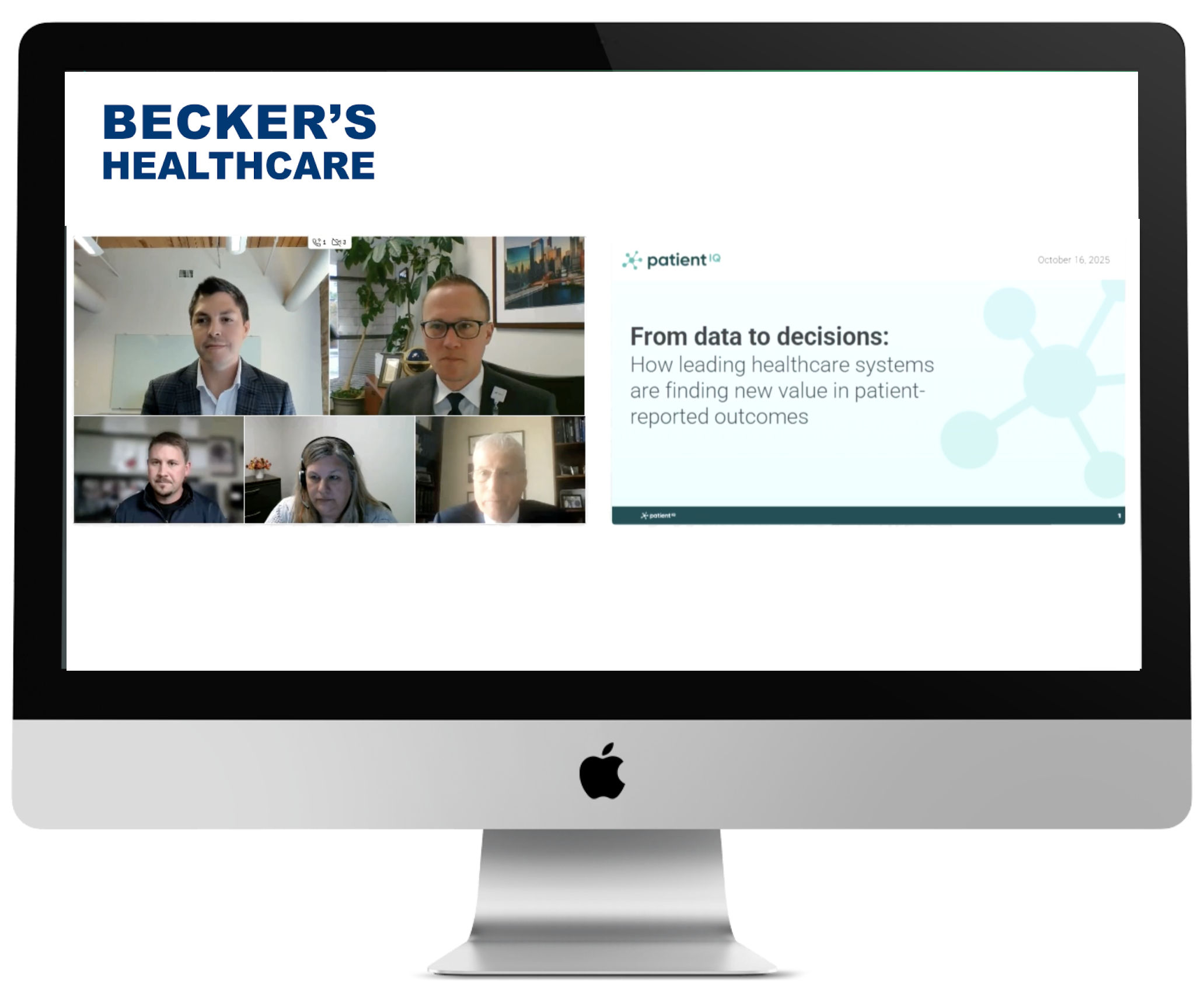How MU Health Care Prioritizes Patient Compliance in Patient-Reported Outcome Collection
The ability to leverage patient-reported outcomes (PROs) data is directly dependent upon patient participation. If patients do not self-report, the...
Seamlessly deploy a scalable, EHR-integrated patient-reported outcomes (PRO) program to enhance patient insights and performance
Rapidly deploy clinical studies and registries on the EDC platform preferred by investigators
Prove your value by benchmarking your PROs against PatientIQ’s industry-leading real-world PRO dataset
Unparalleled expertise to help you leverage outcomes data and meet your clinical and operational objectives
3 min read
Kendall Shadley : Mar 20, 2023 12:00:00 AM
Patient education is a way to create awareness and empower patients to be involved in any important decisions regarding their care plan. Throughout the years, patient education has evolved from creating public health awareness of infectious and chronic diseases to what it is today -- where there are laws in place to ensure that patients receive complete information about a diagnosis, treatment, and prognosis.
There are multiple modalities to offer patient education, including handouts, manuals, booklets, and in-person classes. Although these methods provide comprehensive and evidence-based information, they are not always convenient or easily digestible.
Digitalized patient education, such as using videos, can be an advantageous way to ensure patients comprehend the materials. Not only can videos be more entertaining, but they can make the content easier to grasp for those with lower literacy levels. Digitalized patient education also allows patients to access the information as frequently as they need prior to their procedure. In addition, patients can conveniently watch the videos from the comfort of their own home without struggling with the logistics of getting to a care center.
One retrospective study compared preoperative patient education in patients who underwent a total knee arthroplasty to patients who did not receive education prior to their procedure. The results showed a statistically significant difference, with control patients (p = 0.03) having a higher rate of in-hospital falls than those in the education group.[1] Preoperative patient education also proved to significantly reduce the length of stay, by approximately 1.0 days, for those undergoing total hip and knee arthroplasty procedures.[2]
In addition to reduced postoperative fall rates and shorter hospital stays, there are further benefits of implementing preoperative patient education programs at your practice, including:
PatientIQ is a staunch advocate for the power of education and believes that with modern technology, we can help your organization achieve all the benefits of education without the historical drawbacks. In addition, our patient education videos will better prepare your patients and lead to significantly improved postoperative outcomes.
Contact Us
Please contact us at hello@patientiq.io or request a demo from our website to learn more about the platform!
Citations
The ability to leverage patient-reported outcomes (PROs) data is directly dependent upon patient participation. If patients do not self-report, the...
Key Takeaways Experts say capturing the patient voice is essential for cancer care Patient-reported outcomes collection is a vehicle for...

In healthcare, value has long been defined as outcomes over cost. But as PatientIQ CEO Matt Gitelis explained during a recent Becker’s Healthcare...